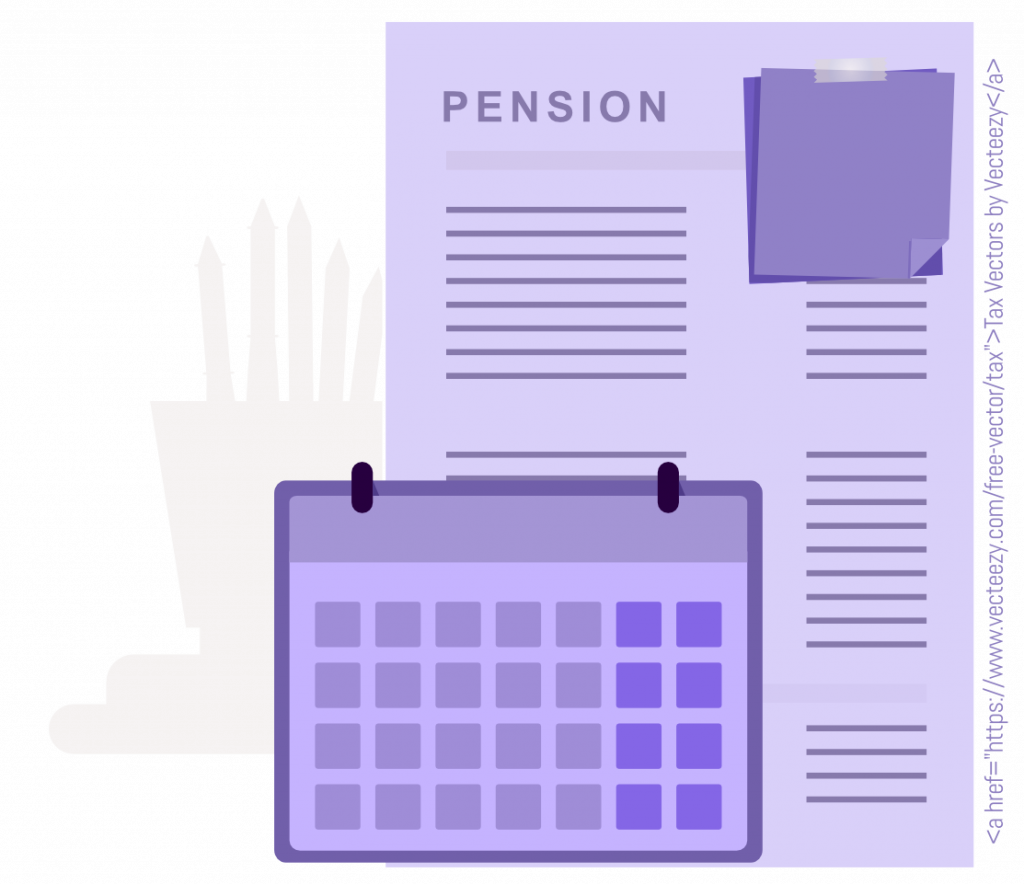State Pensions
- What is the State Pension?
- How much is the State Pension?
- What is your State Pension entitlement?
- Widow's Pension
- State Pension after a divorce
- How much is the State Pension for a married couple?
- When can you claim your State Pension?
- Can you live off the State Pension?
- How to boost your State Pension.
- Delay taking your State Pension
- Buy 'extra' pension years
- Claim Child Benefit to protect your State Pension
What is a State Pension?

How much is the State Pension?
The full state pension is currently ₤175.20 per week (2020/ 21), a total of ₤9,110.40 per year. It is adjusted each year based on the ‘triple lock’ guarantee, which means that each April it increases by the greatest of September’s price inflation, earnings growth or 2.5%.
Not everyone is entitled to the maximum state pension. You’ll need to have 10 years of National Insurance Contributions to receive the bare minimum. To receive the maximum State Pension amount, you’ll need to have 35 ‘qualifying’ years.
How to determine a qualifying year?
The list of factors that determine a qualifying year include:
- You’re employed and earning over ₤183 a week (2020/21) from one employer and paying National Insurance Contributions
- You’re employed and earning between ₤120 and ₤183 a week (2020/21) from one employer and are treated as having paid National Insurance Contributions
- You’re self-employed and paying Class 2 National Insurance Contributions
- You make voluntary National Insurance contributions
- You receive National Insurance credits
Previously, there was a ‘two-tier State Pension’. You could get the full ‘basic State Pension’ if you had at least 30 years of National Insurance Contributions, and then depending on your level of National Insurance Contributions, you may have been eligible to receive some ‘additional State Pension’. However, the current system is only a ‘single tier’ State Pension as calculated by just your National Insurance Contributions (or received credits) and the period of time you have been paying them.
Figures from the Department for Work and Pensions indicate that the average State Pension was around ₤158 per week (2019/20). The average pay out for men was roughly ₤160, whilst for women it was only ₤152.
What is your State Pension entitlement?
The State Pension you’ll receive is based on the National Insurance Contributions you make during your working life and how many ‘qualifying years’ you have built up.
You can use the gov.uk State Pension Calculator to check your National Insurance contributions. You just need to answer a few simple questions to find out how much State Pension you could get, when you can claim it and how you can potentially increase it. Checking your State Pension forecast is a crucial part of retirement planning and will help you calculate just how much you stand to receive from the government.
Your State Pension entitlement could be higher if you’re a man born before 6 April 1951 or a woman born before 6 April 1953, due to the age you were when the new State Pension rules came into effect. For more information on this, you can check the government’s website.
Widow's Pension
Your state pension entitlement may also be affected if you are widowed. If your deceased spouse or civil partner has reached state pension age but has not yet applied for it, you may be able to inherit an additional payment. This extra payment may consist of an Additional State Pension, or in some cases a protected payment. However, if you have since remarried or entered a new civil partnership before you reach State Pension age, you won’t inherit any additional amount.
State pension in case of a divorce
Your state pension rights could be affected if you are divorced or your civil partnership has been dissolved. You will get a ‘pension sharing order‘ as part of your financial settlement with your ex-partner. In this case, the court can decide that an individual must share their additional state pension or protected payment with their former partner. Your partner’s State Pension will be reduced and you will get the additional amount as an extra payment on top of your State Pension if the court does decide this
How much is the State Pension for a married couple?

As a couple, it is now much easier to establish your pension entitlement. Previously, in the old two-tier State Pension, a married woman was able to claim a pension at 60% of their husband’s basic State Pension record based on their National Insurance Contributions In the new system, however, the option to claim a pension based on a partner’s contributions has been abolished. You will now only be able to claim your own State Pension, based on your own contributions. This does mean, however, that you could receive a maximum of ₤350.40 per week or ₤18,220.80 per year between the two of you (2020/21).
When can you claim your State Pension?

The age at which you can claim your state pension has changed dramatically since 2010 and will continue to do so in the future. Currently, both women and men can claim their State Pension from the age of 66. However, this is set to increase to 67 by 2028, before increasing again to 68 between 2037 and 2039.
At the moment, you do not receive your state pension automatically and must apply for it when you reach state pension age. You will receive a letter 4 months before you reach State Pension age, which will have instructions on how to claim it. Currently, you can do this online, by phone or by filling in the state pension application form and sending it to your local pension office.
The rules on the state pension are likely to continue to change as governments legislate. It’s quite possible that both the State Pension age and the amount you receive from it will be squeezed more in the future, as governments try to save money. Instead, it’s likely that ministers will look for ways to incentivise workplace and personal pension saving.
Can you live off the State Pension?
You will have an annual income of just over ₤9,000 if you qualify for the full state pension. Research by the Pensions and Lifetime Isa found that a “moderate” retirement requires just over ₤20,000-a-year to provide some flexibility and financial security, alongside a few luxuries. So, in order to achieve this income of ₤20,000 in retirement, you’ll need to have some additional provisions in place on top of your State Pension.
Although your circumstances may mean you need less money in later life when you remove the costs of commuting, or if you manage to repay your mortgage before retirement, no matter how much you reduce your outgoings by, it’s unlikely the State Pension will be enough to live off – even if you receive the maximum amount. It’s therefore crucial to save into a personal pension and/or a workplace pension well in advance of retirement so that you’ll have a decent income in later life.
How to boost your State Pension.
Ensure you are paying enough National Insurance Contributions.
If there have been periods in your career when, for various reasons, you have not worked or paid your National Insurance, you need not worry. You may be entitled to claim National Insurance Credits, which can help you fill in the gaps in your contribution record.
If you are eligible for National Insurance Credits, check
National Insurance credits are vital for people who are unemployed, on low incomes or claiming benefits. You’ll also be able to claim credits if you haven’t been able to work due to ill-health, or are looking after children or completing jury service. These are just a few examples, with more information and how to apply for them on the National Insurance Credits section of the GOV.UK website.
There may also be gaps in your insurance documents if you have worked abroad or have been self-employed during your career. You’ll be able to make voluntary contributions if this is the case. These are known as Class 3 Contributions and can help you make up for the years you may have missed. However, you can normally only make voluntary contributions for gaps within the previous six years.
Delay taking your State Pension
Although you are (currently) entitled to your state pension from the age of 65, you do not have to apply for it immediately. When you start to claim it can be useful and may allow you to boost your income when you eventually need it, delaying. If you decide to stay in employment, you could delay claiming your State Pension by a few years, which could help you secure additional money when you choose to retire.
It increases by 1 per cent for every nine weeks you defer your state pension. So, if you were to delay taking it by a year, that would be an increase of nearly 6%. The additional amount should also increase each year in line with inflation too.
Buy 'extra' pension years
It is worth using a one-off lump sum to buy a higher state pension than you would get if you can afford it. However, this should only be done if your forecast or personal calculations show you will be short of the full 35 qualifying years. The extra payment could be worth thousands over your lifetime if you live long. You can only top up for any missing contributions in the most recent 10 year period.

Claim Child Benefit to protect your State Pension
If you have children, it is important to claim child benefit, even if you are earning more than ₤ 50,000, as this can help build up the necessary credit. After making an application for child benefit, those responsible for the High-Income Child Benefit Charge (HICBC) can opt out of paying child benefit if they want to avoid a tax burden, but still receive National Insurance credits.
